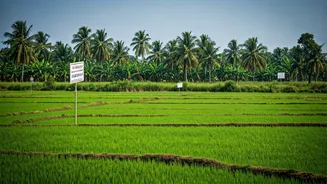Supreme Court Setback
The Supreme Court's recent ruling prompted the Rural Ministry to re-evaluate the situation. The setback created a critical need to find a solution that
addressed the issues raised by the court. After careful assessment and deliberation, the ministry has decided to address the complications by considering the reinstatement of MGNREGS in West Bengal. This is a crucial move, given the scheme's role in providing employment and supporting rural livelihoods. The decision indicates the government's commitment to finding a way forward, despite the legal hurdles. The ministry's response is an attempt to navigate the situation and find a sustainable approach to ensure the program's benefits continue to reach the intended recipients. It is a signal of the government's resolve to overcome the obstacles and ensure the welfare of the people.
PMO Discussions Begin
The Rural Ministry's decision to consider MGNREGS resumption in West Bengal was made after extensive consultations with the Prime Minister's Office. These discussions were pivotal in shaping the ministry's approach and ensuring alignment with broader government objectives. The involvement of the PMO highlights the significance of the situation and the government's unified efforts to resolve it. The deliberations likely involved evaluating the implications of the court's judgment, assessing the program's requirements, and determining how to best implement MGNREGS. Such discussions often encompass budgetary allocations, procedural adjustments, and strategies to improve program effectiveness. The collaboration between the Rural Ministry and the PMO reveals a high-level focus on addressing challenges and finding effective solutions. This cooperative spirit is a positive sign for the future of the MGNREGS program in West Bengal.
MGNREGS in West Bengal
MGNREGS is designed to provide at least 100 days of guaranteed wage employment to every household whose adult members volunteer to do unskilled manual work. For West Bengal, the potential resumption means the revival of a key initiative designed to provide employment and financial support to rural residents. The program directly impacts the livelihood of numerous families, making it a critical tool for poverty reduction and rural development. The reintroduction of MGNREGS will bring opportunities for manual labor, providing crucial income sources, and assisting in the improvement of the living standards in the state. The program’s focus is on providing work in local areas, which not only provides employment but also helps create vital infrastructure such as roads, water conservation projects, and other public works. The initiative aims to alleviate poverty, enhance rural infrastructure, and ensure economic security for the vulnerable populations.
Challenges and Solutions
The setback in the Supreme Court may have introduced several challenges that the ministry had to overcome. Any obstacles could include issues with program execution, financial governance, or legal compliance. In considering the resumption of MGNREGS, the ministry likely aims to resolve these problems. This might involve reviewing existing guidelines, enhancing monitoring mechanisms, or implementing improved financial practices. The decision also suggests a resolve to revise the program and make necessary corrections, ensuring it is more efficient and aligned with legal standards. This proactive approach underscores the ministry's determination to maintain the advantages of MGNREGS while dealing with any difficulties. The measures taken may include measures to bolster transparency, accountability, and the efficient allocation of resources. The government aims to adapt the program to improve its impact on the rural areas and ensure that it effectively delivers employment opportunities.
Future Outlook and Impact
The potential resumption of MGNREGS in West Bengal is a vital step. Its impact will be significant on rural communities, and it shows the government's commitment to helping the people. Restarting the scheme could help reduce poverty, boost rural infrastructure, and improve the state's economy. The Rural Ministry's move could also set a positive precedent for similar initiatives. The decision reflects the ongoing effort to ensure that essential welfare programs are available. Looking forward, the success of MGNREGS's reintroduction depends on effective implementation and good governance. The outcomes of the program will likely be observed closely, as they will provide lessons on managing similar challenges. Continued attention on the program's efficiency and impact will play a vital role in its long-term viability and in ensuring its contribution to rural development.



















